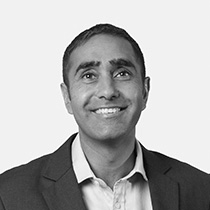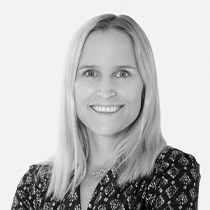OPTIMUM GROWTH IS an unconstrained world-wide flexible fund, aiming to meaningfully grow wealth for long-term investors. The Fund appreciated by 13.4% in the second quarter of 2020 (Q2-20), bringing the year-to-date return to 18.7%, which is more than 10% ahead of benchmark. Over the past decade, the Fund returned 16.9% p.a. The Global Emerging Markets (GEM) Flexible Fund aims to give investors access to the best equity opportunities in emerging markets. The Fund returned 16.6% during Q2-20, which is 1.8% ahead of benchmark. Since inception 13 years ago, it outperformed the benchmark by 2% p.a.
GROWTH AND PROTECTION
Optimum Growth ended Q2-20 with 70% net equity exposure, similar to its position at the end of March, but with a higher weighting towards emerging markets, which have lagged the developed market equity rally. Approximately 51% of the equity exposure was invested in developed market equities (54% in Q1-20) and 49% in emerging market equities (46% in Q1-20). Our negative view on global bonds remains unchanged, as a large portion of developed market sovereign bonds offer negative yields to maturity, with the follow-on effect that most corporate bonds also offer yields that do not compensate for the risk undertaken. Only 1.2% of the Fund is invested in bonds. It also has c.3.5% invested in global property, largely Vonovia (German residential) and Unibail (European and US retail property). Lastly, the Fund has a physical gold position of 2.6%, along with a 0.8% holding in Barrick Gold Corporation, the largest gold miner globally, both of which have been reduced marginally during the quarter.
The balance is invested in cash, largely offshore. As has been the case for many years, the bulk of the Fund (over 90%) is invested offshore, with very little exposure to South Africa.
The largest positive contributors in Q2-20 were Spotify (+104%, 1.5% positive impact), Mercado Libre (+96%, 1.1% positive impact) and JD.com (+44%, 0.8% positive impact). The Fund’s put-option positions, which provided valuable protection in Q1-20, detracted 1.8% from performance in Q2-20. These put options continue to provide protection should there be a market sell-off.
ENHANCING POSITIONS
We built new positions in the Optimum Growth portfolio in Linde PLC, Roche and Mercari.
Linde PLC
Linde PLC is the largest industrial gas business in the world (20% market share), with extensive geographic and industry diversification. The business owns hard-to-replicate assets given their geographic location, which is key when selling a commodity that can be prohibitively expensive to transport. The company’s revenue is generated via sales to large customers, often with a long-term contract; medium-sized captive customers with associated offtake agreements; and smaller customers that have cylinders associated to the sale which are rented, providing an incentive for repeat usage and refill.
Ultimately, this creates a business with a large portion of annuity revenue that we believe can steadily grow and compound over time. The business is a function of the merger of Linde and Praxair in 2017/2018, with expected post-merger synergies resulting in free cash flow increasing by a third. The CEO of the combined entity has an exceptional track record of running Praxair for 12 years prior to the merger; this provides further credibility to the synergy numbers.
Roche
Roche is a global innovative pharmaceutical company with a dominant position in a strongly growing oncology market. The company has a promising pipeline of drugs in addition to its current offering, which should protect it from generic price erosion. Roche has an extreme focus on research and development, and consis-tently outspends its peers in this regard, which has supported consistent innovative drug disco-very.
The business trades on 16 times forward earnings, which should be resilient in the current environment; a starting dividend yield of just under 3%; and an expected mid-single-digit earnings growth profile that should result in a low double-digit total shareholder return.
RISING SUN
Founded in 2013, Mercari is a Japanese business which has a dominant online used goods consumer-to-consumer (C2C) marketplace and a growing payment business. The company also has a fast-growing US online C2C marketplace business. The Japanese C2C business has nearly 17 million monthly active users, up from 13 million a year ago, and is still rapidly growing, as used goods commerce continues to gain traction in Japan.
The payment business operates in a highly compe-titive but lucrative market, as Japan currently significantly lags the developed world in cashless penetration (currently just over 20% versus its developed market peers well north of 50%, depending on the market). Management has laid important strategic building blocks via alliances to improve the competitive positioning of the payment business. Its most notable alliance here is with NTT DoCoMo, the biggest mobile operator in Japan, with a 40% market share.
The used-goods C2C business is well understood, but very little credit is being given to the potential success of the payment business. We think the Japanese C2C business can continue to grow its revenue in excess of 20% over the next few years, with margins continually increasing due to the high incremental margins associated with a marketplace business. This should lead to both earnings and free cash flow growth in excess of this revenue growth rate. Outside of this, we believe that both the Japanese payment business and the US used-goods marketplace should reduce losses significantly as they move from investment phase into monetisation phase.
We are now just over seven months into the Covid-19 pandemic, yet there still remain many unknowns as to its ultimate duration, how governments will respond and what permanent consumer behaviours will manifest post the pandemic. However, against this backdrop, we feel that the Optimum Growth Fund has been built bottom-up and we have ensured adequate diversification without taking a strong thematic portfolio view on hard-to-predict future trends.
LOOK TO THE EAST
The largest contributors to the GEM Flexible Fund’s return in Q2-20 were Chinese premium baijiu company, Wuliangye Yibin, Latin American e-commerce and payments company, Mercado Libre, the number two e-commerce retailer in China, JD.com, the second-largest food retailer in Russia, Magnit, and the top search-engine operator in Russia, Yandex. Philip Morris was the largest detractor. We sold small positions in KB Financial (Korean bank) and Hero MotoCorp (Indian motorbike manufacturer), and reduced the position in 58.com materially (leading online classified business in China). We introduced a small position in Hong Kong Exchanges & Clearing (HKEx), which is the monopoly stock exchange operator in Hong Kong.
The HKEx is effectively a gateway to China, as 70% of the Hong Kong market is made up of Chinese businesses. Stock exchanges are generally very good businesses in our view, and the HKEx is right up there among the best, as its monopoly gives it pricing power and resultant high margins (earnings before interest and tax margins are around 67%, which are among the highest margins for an exchange globally). The HKEx trades on a c.3.5% 2021 free cash flow yield, which we think is attractive, given the quality of this asset and the expected free cash flow growth of c.15% p.a. over the next few years.
Covid-19 has naturally had an impact on all businesses globally. In some cases, this is likely to only be a short- to medium-term impact, but in other cases a long-term impact will be felt as well. For most businesses, the impact has been/will be negative, to varying degrees. One clear exception to this is e-commerce, where there has been a positive impact, largely as a result of increased use of e-commerce by consumers (for obvious reasons), resulting in an acceleration of e-commerce penetration.
This acceleration has resulted in higher earnings and free cash flow generation in the nearer term which, in turn, will result in higher fair values for these businesses due to the time value of money (near-term free cash flow is worth more than free cash flow further out).
The GEM Flexible Fund has a number of investments in emerging market e-commerce assets, including 4.4% in Alibaba and 3.9% in JD.com (the no. 1 and no. 2 e-commerce businesses in China, respectively), and a smaller 1.4% position in Mercado Libre (effectively the Amazon of Latin America).
POSITIVE ON CHINA
While the fall in markets globally in March was very quick and severe, so too has been the rebound over the past few months. The world, and emerging markets, are by no means out of the woods, even if global equity markets seem to be behaving as such. We expect difficult times ahead in a number of emerging markets, particularly those with poor country balance sheets and weak economies, such as South Africa and Brazil, and we have been very selective with stock selection in these countries.
China is emerging as one of the better-off countries – partly because it was ‘first-in’ with Covid-19, partly because the country locked down hard and early, and partly because the underlying economy was reasonably strong pre-Covid-19 and has attractive fundamentals. 34% of GEM Flexible is invested in China (39% if one includes Naspers, whose largest asset [c.80% of our Naspers valuation] is its stake in Tencent). A large part of the Chinese exposure is in internet businesses that have structural growth drivers and which have continued to grow, even through the Covid-19-affected period (Tencent [through Naspers and Prosus], Alibaba, JD.com, NetEase and Tencent Music Entertainment), as well as in selected assets in other attractive industries where penetration rates are low, including premium branded spirits (Wuliangye Yibin), insurance (Ping An) and education (New Oriental Education).
ONLINE IS KING
India is the second-largest country exposure (9.7% of GEM Flexible), with 6% of this being invested in financials (Housing Development Finance Corporation [HDFC] and HDFC Bank). While India is suffering economically because of the country’s hard lockdown, we believe that both HDFC and HDFC Bank, while also clearly being impacted, will take market share from weaker players and emerge even stronger at the other end. 1.9% of the Fund is invested in two Indian IT services companies (Tata Consultancy and Infosys). Russia is the third-largest exposure by country (10%), with four investments – no. 1 and no. 2 food retailers, X5 Retail and Magnit (a combined 5% position), Yandex (first in search, with various other assets, including taxi-ride hailing, food delivery, e-commerce and online classified advertising; a 2.8% position), and Sberbank (1.8%). +
Coronation Optimum Growth: Highest annual return 51.1% Jan 2013 - Dec 2013; Lowest annual return (31.5%) Mar 2008 - Feb 2009
Coronation Global Emerging Markets Flexible: Highest annual return 49.7% Mar 2009 - Feb 2010; Lowest annual return (37.5%) Mar 2008 - Feb 2009
 South Africa - Personal
South Africa - Personal





